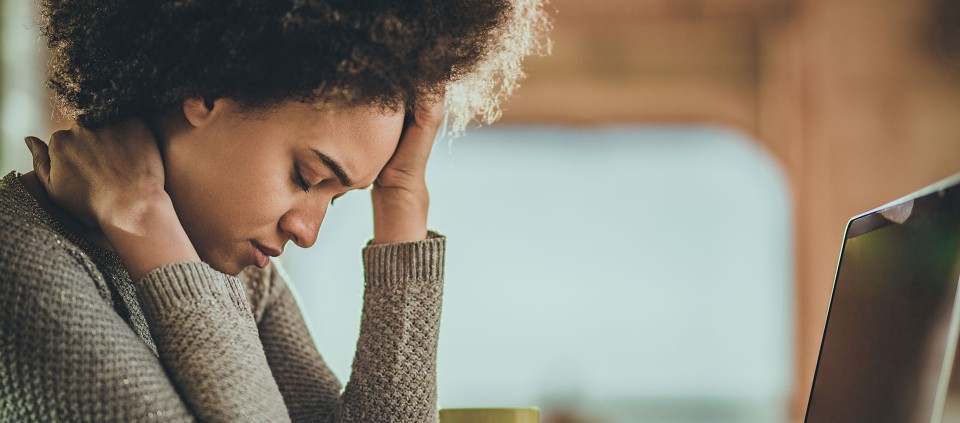The Food Factor in Migraine Prevention

I started getting migraines frequently when I was in graduate school. By the time I was in the middle of my doctoral degree program, the migraines were nonstop. The effects spread throughout my entire body, with an added diagnosis of “abdominal migraine.”
I asked doctor after doctor for advice on how to manage the condition, as my quality of life was deteriorating quickly. They told me there was no cure, and nothing they could do. I had a strong feeling that food was at the root of the issue for me, but none of my doctors agreed.
One night, as I was lying in pain on the bathroom floor, a conversation unfolded in my mind—between what I see now as the love and the fear within me.
Love: I need to figure out how to get well, then devote my life to spreading the word so others won’t have to suffer like this.
Fear: You can’t even get up off the floor, how will you ever help anyone?
Love: I’ll start from square one: learn what to eat and how to de-stress. Then, I’ll go from there.
Fear: How will you begin? You have no one to help you.
Love: I’ll do more yoga, and through that I’m sure I’ll meet someone who can help.
Back then, I didn’t meditate, I thought macaroni and cheese was a healthy meal because of the nutrition information on the side of the box, and I didn’t think that pulling all-nighters with my colleagues could be harming my health. But the migraines pushed me in a new direction. I left the doctoral program and went to Kripalu to learn about yoga, meditation, and a healthy lifestyle. I read Mark Hyman’s book, The UltraSimple Diet, and started changing my diet, meditating, getting on a regular sleep schedule, and practicing yoga every day.
And my migraines disappeared.
When I began working at the UltraWellness Center, the Functional Medicine clinic founded by Mark, another of the doctors there, Elizabeth Boham, MD, MS, RD, helped me deepen my knowledge of how food can be medicine. Using Functional Medicine, she looks for the root cause of symptoms, treats people as individuals, focuses on a variety of lifestyle factors, and sees the systems of the body and mind as interconnected.
A primary cause of my migraine was that I gravitated towards foods that were stressful on my body, and I avoided the foods that my body needed. While the causes of migraine aren’t the same for everyone, I hope these tips will help you, too.
What to eliminate:
- Gluten
- Sugar
- Eggs
- Gluten-free junk food.
What to reduce or eliminate:
- Caffeine (slowly wean down, so you don’t get a rebound headache)
- White foods (such as white rice and foods made with flours)
- Processed foods
- Dairy (for many people).
What to enjoy:
- Vegetables should comprise half of each meal. Try to eat a variety of colors throughout the day. Cooked vegetables can be easier to digest.
- Add healthy fats to each meal, such as avocados, nuts and seeds, coconut oil, and wild-caught salmon.
- Choose foods with magnesium, such as dark leafy greens, beans and nuts, and check with your nutritionist or physician to see if a magnesium supplement is right for you.
- Most adults get enough protein, but often don’t spread it out during the day. Include a good protein source in each meal to help balance blood sugar.
Try this way of eating for six weeks and see if you notice a difference. It can be helpful to keep a diary each day to note how you’re feeling.
Along with a healthy diet, maintaining a healthy lifestyle can help reduce withdrawal symptoms and contribute to migraine prevention. That includes drinking at least 64 ounces of water each day, establishing consistent sleeping and eating routines, getting in some movement each day, and spending time with people you love.
Find out about programs with Heidi E. Spear and Elizabeth Boham.
© Kripalu Center for Yoga & Health. All rights reserved. To request permission to reprint, please email editor@kripalu.org.
Heidi Spear, MA, ABD, is an author, workshop presenter, Reiki master, and Kripalu-trained yoga and meditation teacher who has been on the Kripalu R&R Retreat faculty since 2008.
Full Bio and Programs